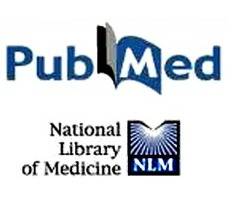 Strong correlation between diet and development of colorectal cancer.
Strong correlation between diet and development of colorectal cancer.
Source
Department of Surgery, General Surgery and Breast Unit, University of Catania, Azienda Ospedaliero, Universitaria Policlinico, Vittorio Emanuele, via S. Sofia, 78 – 95123 Catania, Italy.
Abstract
- PMID:
- 23276917
- [PubMed – indexed for MEDLINE]
Publication Types, MeSH Terms, Substances
Publication Types
MeSH Terms
- Alcohol Drinking/adverse effects
- Colitis/chemically induced
- Colorectal Neoplasms/chemically induced
- Colorectal Neoplasms/etiology*
- Colorectal Neoplasms/prevention & control
- Diet/adverse effects*
- Dietary Fiber/administration & dosage
- Epigenesis, Genetic
- Fatty Acids, Unsaturated/administration & dosage
- Folic Acid/therapeutic use
- Fruit
- Glycemic Index
- Humans
- Insulin Resistance/physiology
- Intestinal Mucosa/pathology
- Meat/adverse effects
- Obesity/complications
- Smoking/adverse effects
- Vegetables
Substances
LinkOut – more resources
Full Text Sources
Medical
Molecular Biology Databases
———->
Possible endocannabinoid control of colorectal cancer growth.
Source
Endovannabinoid Research Group, Institute of Biomolecular Chemistry, Pozzuoli, Italy.
Abstract
BACKGROUND & AIMS:
 The endocannabinoids anandamide and 2-arachidonoylglycerol (2-AG) inhibitcancer cell proliferation by acting at cannabinoid receptors (CBRs). We studied (1). the levels of endocannabinoids, cannabinoid CB(1) and CB(2) receptors, and fatty acid amide hydrolase (FAAH, which catalyzes endocannabinoid hydrolysis) in colorectal carcinomas (CRC), adenomatous polyps, and neighboring healthy mucosa; and (2). the effects of endocannabinoids, and of inhibitors of their inactivation, on human CRC cell proliferation.
The endocannabinoids anandamide and 2-arachidonoylglycerol (2-AG) inhibitcancer cell proliferation by acting at cannabinoid receptors (CBRs). We studied (1). the levels of endocannabinoids, cannabinoid CB(1) and CB(2) receptors, and fatty acid amide hydrolase (FAAH, which catalyzes endocannabinoid hydrolysis) in colorectal carcinomas (CRC), adenomatous polyps, and neighboring healthy mucosa; and (2). the effects of endocannabinoids, and of inhibitors of their inactivation, on human CRC cell proliferation.
METHODS:
Tissues were obtained from 21 patients by biopsy during colonoscopy. Endocannabinoids were measured by liquid chromatography-mass spectrometry (LC-MS). CB(1), CB(2), and FAAH expression were analyzed by RT-PCR and Western immunoblotting. CRC cell lines (CaCo-2 and DLD-1) were used to test antiproliferative effects.
RESULTS:
All tissues and cells analyzed contain anandamide, 2-AG, CBRs, and FAAH. The levels of the endocannabinoids are 3- and 2-fold higher in adenomas and CRCs than normal mucosa. Anandamide, 2-AG, and the CBR agonist HU-210 potently inhibit CaCo-2 cell proliferation. This effect is blocked by the CB(1) antagonist SR141716A, but not by the CB(2) antagonist SR144528, and is mimicked by CB(1)-selective, but not CB(2)-selective, agonists. In DLD-1 cells, both CB(1) and CB(2) receptors mediate inhibition of proliferation. Inhibitors of endocannabinoid inactivation enhance CaCo-2 cell endocannabinoid levels and block cell proliferation, this effect being antagonized by SR141716A. CaCo-2 cell differentiation into noninvasive cells results in increased FAAH expression, lower endocannabinoid levels, and no responsiveness to cannabinoids.
CONCLUSIONS:
Endocannabinoid levels are enhanced in transformed colon mucosa cells possibly to counteract proliferation via CBRs. Inhibitors of endocannabinoid inactivation may prove useful anticancer agents.
Comment in
- Cannabinoids and the gut. [Gastroenterology. 2003]
- PMID:
- 12949714
- [PubMed – indexed for MEDLINE]
Publication Types, MeSH Terms, Substances
Publication Types
MeSH Terms
- Amidohydrolases/metabolism
- Caco-2 Cells
- Cannabinoid Receptor Modulators
- Cell Differentiation
- Cell Division
- Colorectal Neoplasms/pathology*
- Colorectal Neoplasms/therapy
- Cyclooxygenase 2
- Endocannabinoids
- Fatty Acids, Unsaturated/analysis
- Fatty Acids, Unsaturated/antagonists & inhibitors
- Fatty Acids, Unsaturated/physiology*
- Humans
- Isoenzymes/analysis
- Isoenzymes/antagonists & inhibitors
- Membrane Proteins
- Prostaglandin-Endoperoxide Synthases/analysis
- Receptors, Cannabinoid
- Receptors, Drug/analysis
Substances


